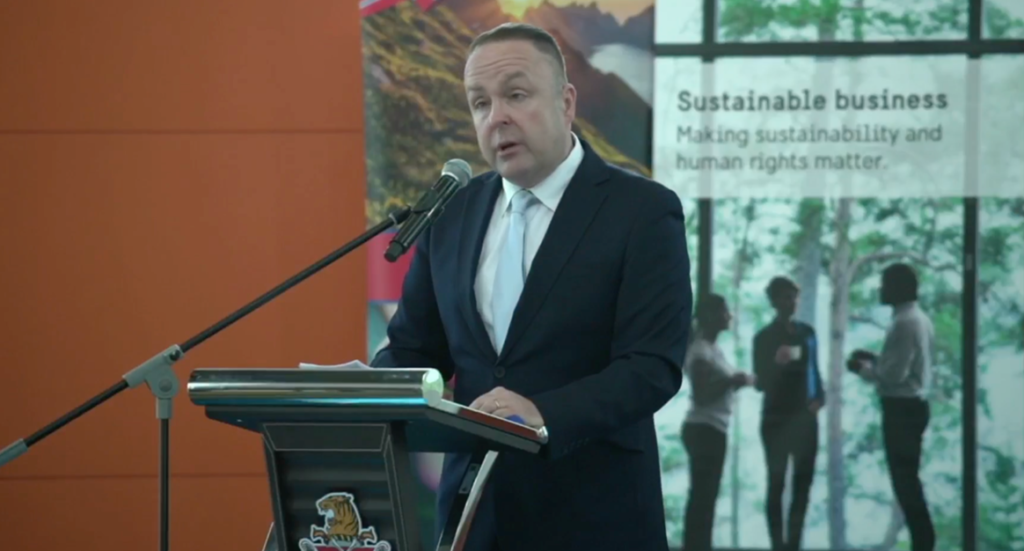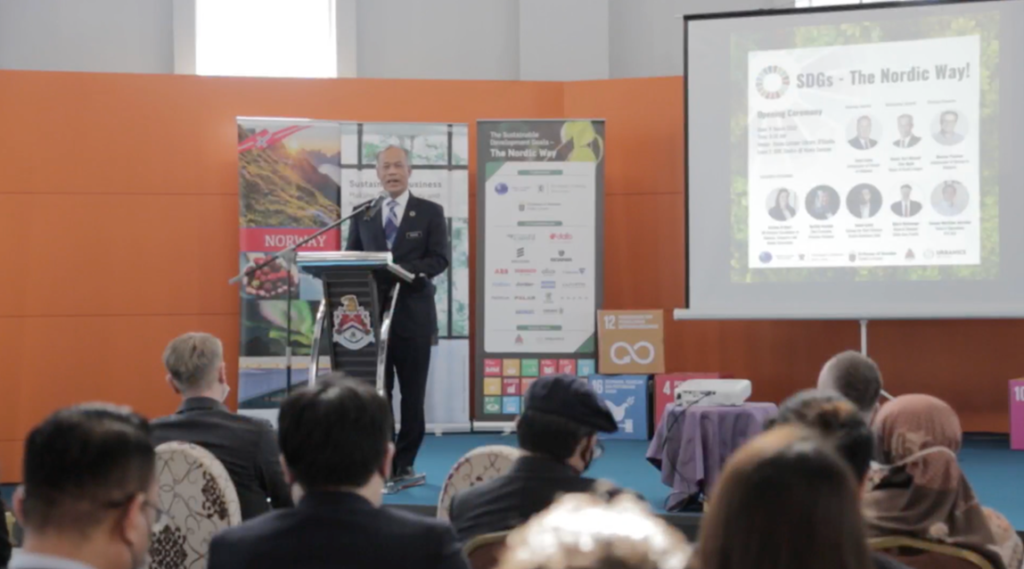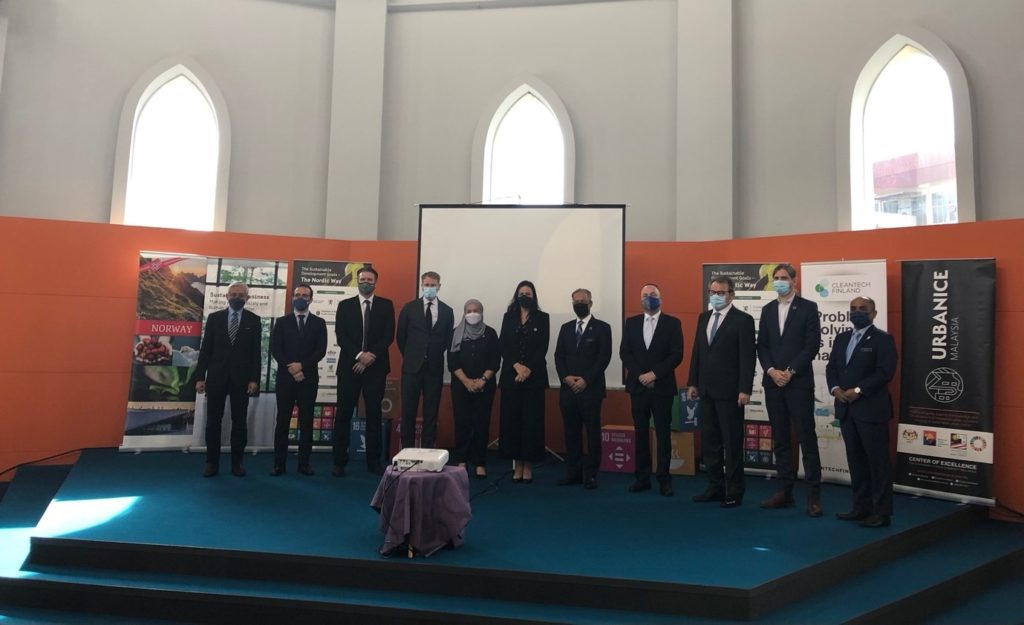IURC Asia & Australasia experts were invited by the Nordic Embassies of Sweden, Finland and Norway to Malaysia and Datuk Seri Mahadi Che Ngah, Mayor of Kuala Lumpur, to attend a hybrid Opening Ceremony together with key national stakeholders collaborating in both the IURC Malaysia component and Global Covenant of Mayors (GCOM). Kuala Lumpur has been selected to participate in the GCOM programme along with 10 other cities in Malaysia. The IUC Asia – GCOM started collaborating way back in 2017 and this is still ongoing for IURC-GCOM (2021-2023).

The key takeaways are as follows:

H.E. Mr Sami Leino, Ambassador of Finland to Malaysia emphasised the Nordic cooperation with Malaysian cities was crucial in advancing the sustainable development goals at both national and international levels. The Nordic region has set ambitious climate goals and is striving to become the most sustainable and integrated region by 2030. In the cooperation with Malaysian cities and its private sector industries, the Nordic region hopes to work closely with Malaysian stakeholders on climate change, biodiversity and circular economy as Malaysia positions itself as a future oriented society in tackling global challenges together.

YBhg Datuk Seri Haji Mahadi Che Ngah, Mayor of Kuala Lumpur, emphasised that collective action is certain to pave the way to achieving the SDGs. In line with the UN SDG Agenda 2030, Kuala Lumpur City Hall envisions its city that is truly sustainable, liveable, resilient, safe, and inclusive for all. Like any major city, Kuala Lumpur faces significant challenges as well and the city’s approach towards the SDGs is based on three fundamental pillars: social, economic and environmental. He stressed that this approach ensures we leave no one behind, as we shape a sustainable city driven by a vibrant economy and model society. While the SDGs are a shared global ambition, Kuala Lumpur city is cognisant that there is no one size fits all solutions and it requires a targeted approach as every region and city is unique. Kuala Lumpur has localised its SDG approaches in order to ensure that all Malaysians are aligned with these goals. This is reflected in the incorporation in Kuala Lumpur’s development plans that spearheads the sustainable growth of Kuala Lumpur such as the current draft Kuala Lumpur 2030 Plan, Low Carbon Society Blueprint 2040 and Climate Action Plan 2050 to urgently address climate change.
Messages from Ms. Emma Kari, Finnish Minister of Environment and Climate Change, were mainly focused on Nordic cooperation in sustainable development. Cooperation with Malaysia is rooted in history and in shared values such as a welfare society that includes, amongst other things, high-level environmental protection, gender equality and effective public institutions. The cooperation will strengthen governance leadership, multi-stakeholder participation, science-based knowledge, policy coherence and social innovation, and living within planetary boundaries. Mr. Jan Christian Vestre, Norwegian Minister of Trade and Industry, shared on how such events paved the way for great opportunities for Norway-Malaysia to work more closely to reach the UN SDGs and how it can help speed up the green transition: building a strong, sustainable future economy, green solutions and profitable businesses. Trade between Norway and Malaysia has doubled in the last decade and Norwegian companies are present in a variety of different sectors in Malaysia. He wished Malaysia much success in reaching net-zero emissions by 2050, progress towards greener industries and to lower GHG emissions. It is important for Norway-Malaysia to join forces across borders and to create new green jobs as well. Ms. Annika Strandhäll, Swedish Minister for Climate and the Environment, concluded that implementing the SDGs at a local level with Malaysia and at the global level is a major focus for the Swedish government. Key focus sectors are transportation, mobility, circular economy and partnerships which are key at the global level. Swedish-Malaysia dialogues have been focused on SDGs, sustainable business solutions, sustainable transportation, e-mobility, and waste management. The Swedish government welcomes more cooperation and dialogue between Swedish and Malaysian actors, especially during the one month long event on SDGs in Kuala Lumpur.

In her presentation on “Achieving the SDGs in Malaysia: Progress and Way Forward”, Ms. Karima El Korri, UN Resident Coordinator to Malaysia, Singapore and Brunei Darussalam, spoke about how Malaysia could revive the new decade of action, better promote sustainable and inclusive recovery, global SDG updates focusing on the post-Covid position, Malaysia’s SDG progress (where we are today and where we are headed in the near future) with some key recommendations. Her slides are available for download with the accompanying recording below.

Ms. Norliza Hashim, Chief Executive of Urbanice Malaysia, shared “How the first SDG centre in the Asia-Pacific region can serve as a platform in the shared journey towards achieving the United Nations Global Agenda 2030”. The SDG centre was launched on 28 September 2021 by the Honourable Mayor of Kuala Lumpur. She highlighted that in localising the SDGs, there was a strong focus on the cities as there are over 300 urban areas in Malaysia with 155 local governments. When Malaysia became an urban nation in 1991, over 50 percent of the population were living in these urban areas. The publication entitled “Malaysia SDG Cities” advocates for three key outcomes for Malaysia SDG Cities to strive towards in achieving their SDG targets and to streamline their efforts in meeting these goals. They are: (1) ensure inclusive growth and development for all, (2) enhance access to quality services to address disparities, and (3) promote environmental sustainability to mitigate climate change. To achieve this, the Mayors of Malaysian cities decided that an SDG centre should be established as a key enabler with five key functions to work as a knowledge centre, data centre, community centre, innovation & launchpad centre, and partnership centre. Kuala Lumpur was chosen as it is not only the capital city of Malaysia, but it is a city which has undergone numerous challenges and is very populated as well.

HE Mr. Morten Paulsen, Ambassador of Norway to Malaysia, closed the opening ceremony by concluding that the willingness of Malaysian cities to engage with their Nordic counterparts have been positive and the SDG centre will be instrumental in hosting more dialogues and multi-stakeholder engagements. He said that the SDG centre, with its forward-leading attitude, will help us all to propel our efforts to achieve the SDGs in the UN agenda. He emphasised that it is this attitude that has driven Kuala Lumpur as an international business hub at an unprecedented pace. It will also drive Malaysia towards a sustainable and prosperous future.
Recording: https://fb.watch/bDTwP77YEb/
Website: https://www.facebook.com/EmbassyofSwedeninKualaLumpur
Presentations:


IURC Asia & Australasia would like to thank Mr. Ola Pihlblad, Counsellor, Deputy Head of Mission, and Ms. Jenn Lew, Promotion Officer, from the Swedish Embassy, Datuk Seri Mahadi Che Ngah, Mayor of Kuala Lumpur City Council, Puan Norliza Hashim, CEO, and Dr. Hafiyyan Mahmud from Urbanice Malaysia. The exhibition can be enjoyed at the SDG Centre in Kuala Lumpur between 7 March and 7 April 2022 and will focus on raising awareness about the SDGs and how everyone can contribute to achieving the SDG goals, as well as inspire people to live more sustainably.
For further information kindly contact Ms. Jacqueline Chang, Country Coordinator | Circular Economy Specialist at jchang@iurc.eu on how you can also collaborate in the Circular Cities Pilot Projects under thematic areas of circular economy waste management and nature-based solutions.
